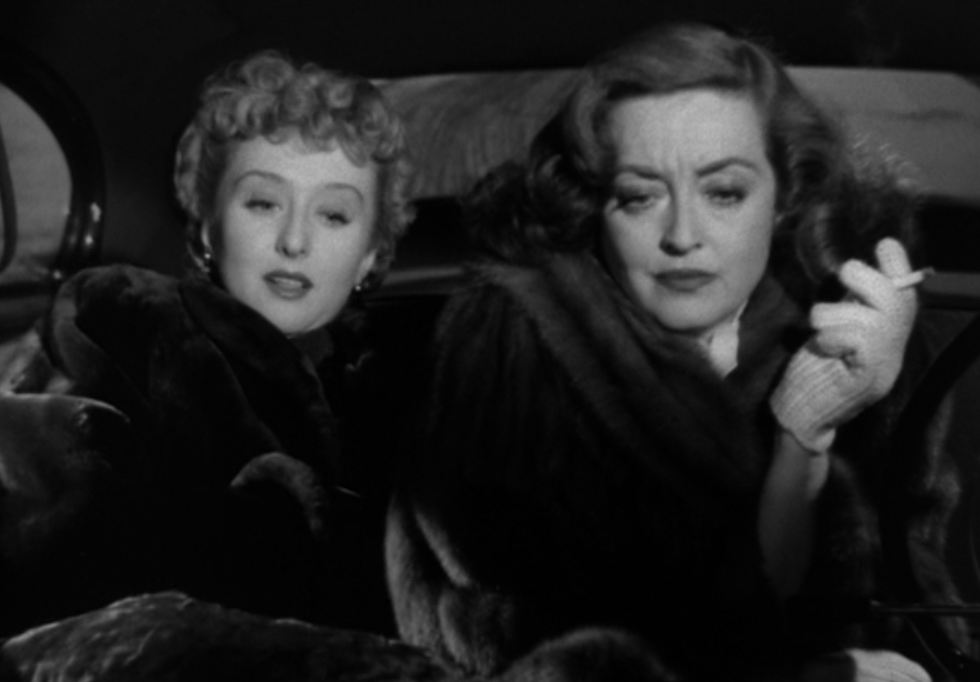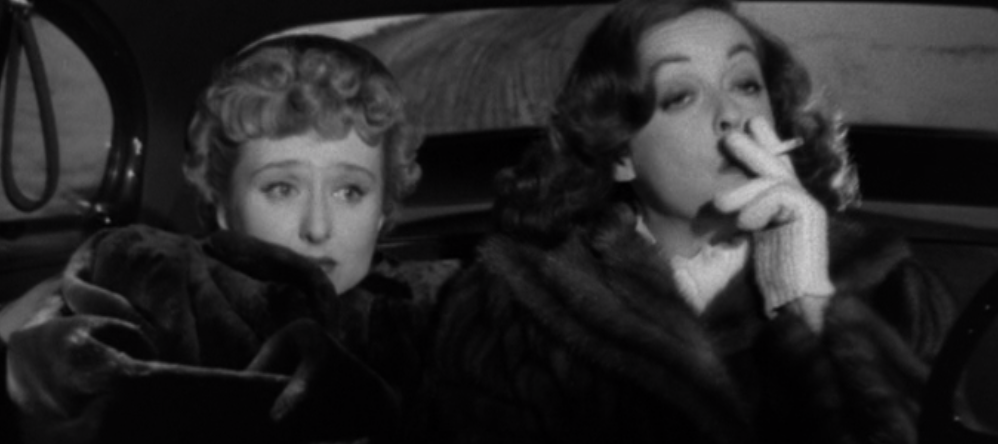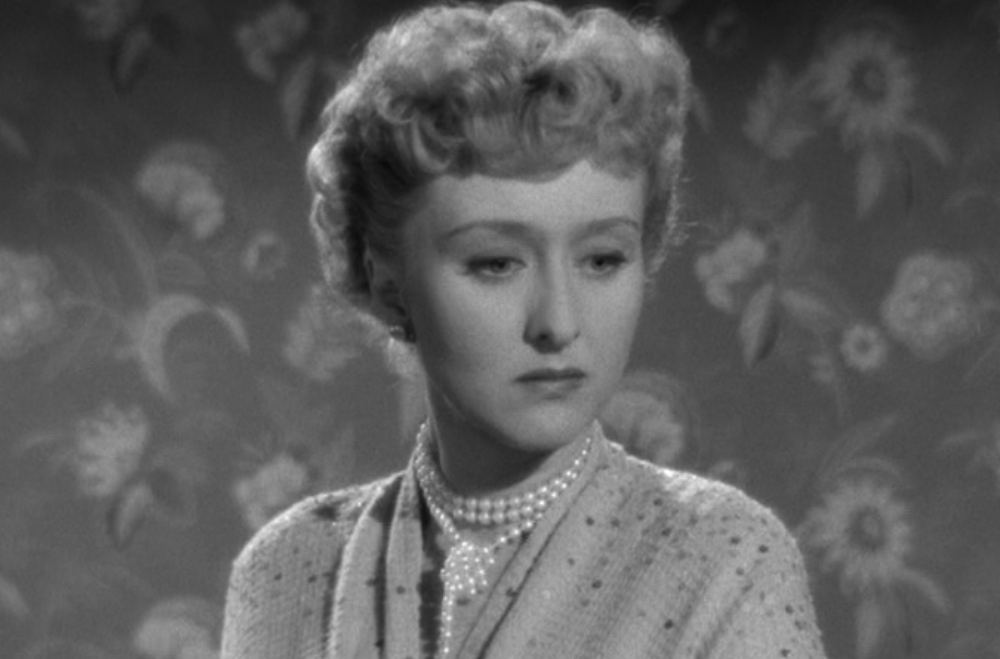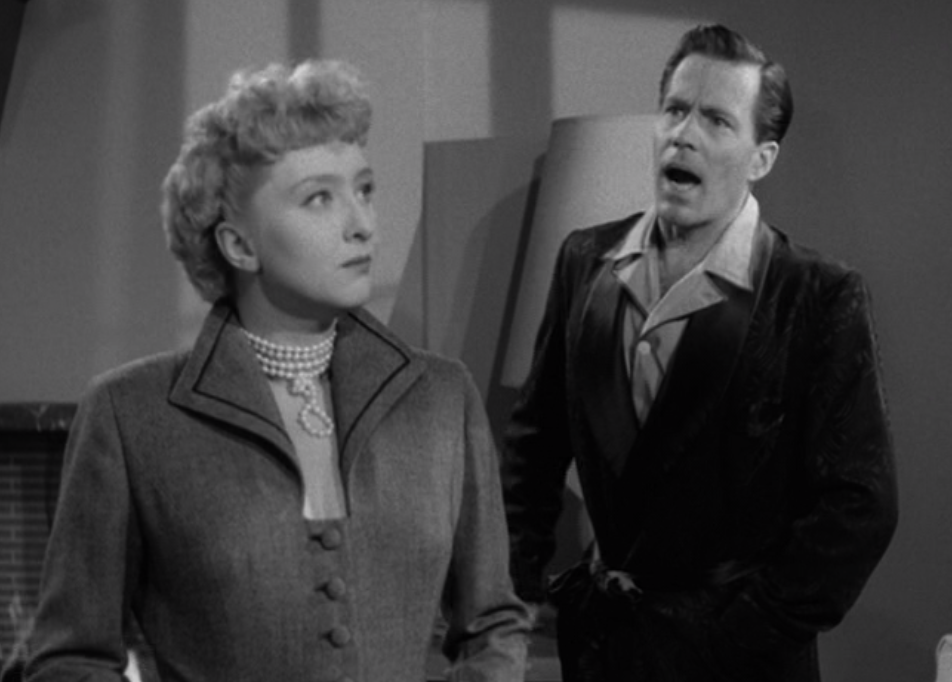 Among the treats I look forward to in Supporting Actress Sundays is hitting the lesser-known or lesser-loved performances by those actresses I have come to call the category's WIDOs, or the actresses who seem to function as the category's standbys for a discrete period of years. WIDOs, of course, is my evocative abbreviation for the "when-in-doubt-options" for Supporting Actress Nominations. WIDOs are those actresses -- think Glenn Close in the early 1980s, Dianne Wiest in the later 1980s, Cate Blanchett in the mid2000s, and Thelma Ritter through most of the 1950s -- who, for a handful of years, seem to ever be on Oscar's Supporting Actress shortlist, whether or not the performance/film warrants it. Sometimes, the performer's run of good nomination fortune begins with a win, but, other times (Close, Ritter), the actress really does turn out to be a WIDO only. So, 'twas with some interest that I approached this week's nominated performance, the least acclaimed of this particular actress's three nominated performances in four years...
Among the treats I look forward to in Supporting Actress Sundays is hitting the lesser-known or lesser-loved performances by those actresses I have come to call the category's WIDOs, or the actresses who seem to function as the category's standbys for a discrete period of years. WIDOs, of course, is my evocative abbreviation for the "when-in-doubt-options" for Supporting Actress Nominations. WIDOs are those actresses -- think Glenn Close in the early 1980s, Dianne Wiest in the later 1980s, Cate Blanchett in the mid2000s, and Thelma Ritter through most of the 1950s -- who, for a handful of years, seem to ever be on Oscar's Supporting Actress shortlist, whether or not the performance/film warrants it. Sometimes, the performer's run of good nomination fortune begins with a win, but, other times (Close, Ritter), the actress really does turn out to be a WIDO only. So, 'twas with some interest that I approached this week's nominated performance, the least acclaimed of this particular actress's three nominated performances in four years...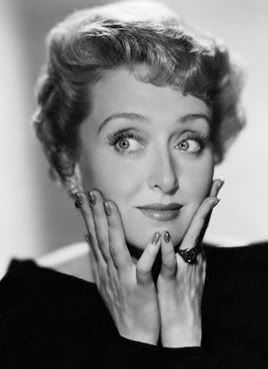
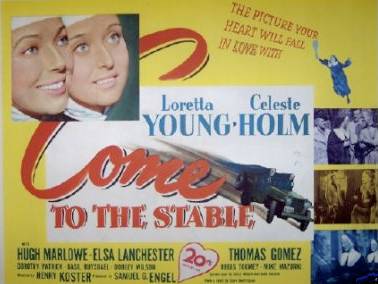
...Celeste Holm in Come to the Stable (1949)
approximately 53 minutes and 51 seconds
31 scenes
roughly 57% of film's total running time
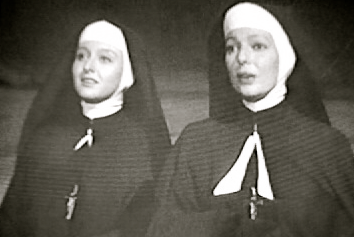 In the role of Sister Scholastica, Holm is charged with three main tasks:
In the role of Sister Scholastica, Holm is charged with three main tasks: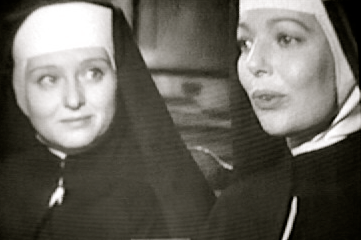 A) To be plausibly naïve/culturally clueless/idiotic enough to justify Sister Margaret's many expository sermonettes;
A) To be plausibly naïve/culturally clueless/idiotic enough to justify Sister Margaret's many expository sermonettes;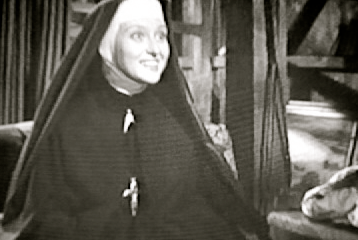 B) To be adorably enthusiastic, permitting her bright face to beam with beatific joy from the confines of her wimple; and
B) To be adorably enthusiastic, permitting her bright face to beam with beatific joy from the confines of her wimple; and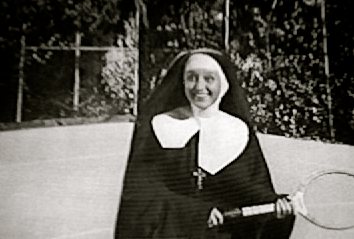 C) To play a mean game of tennis.
C) To play a mean game of tennis.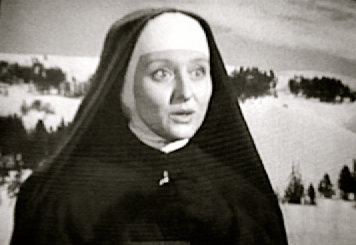 To her credit, Holm acquits herself gamely on all three counts. Which is somewhat impressive as the role has no use whatsoever for what is, perhaps, Holm's greatest gift: the slyly nuanced line-reading. Instead, Holm is saddled with chirpy, mostly monosyllabic dialogue which she delivers in a nearly shrill "Fifi" accent. This incongruity of Holm -- who nearly radiates sophistication and integrity -- in the role of a wimpled French ditzball? It can be tough to swallow (especially with the smarmy Young jabbering right next to the usually silent Holm).
To her credit, Holm acquits herself gamely on all three counts. Which is somewhat impressive as the role has no use whatsoever for what is, perhaps, Holm's greatest gift: the slyly nuanced line-reading. Instead, Holm is saddled with chirpy, mostly monosyllabic dialogue which she delivers in a nearly shrill "Fifi" accent. This incongruity of Holm -- who nearly radiates sophistication and integrity -- in the role of a wimpled French ditzball? It can be tough to swallow (especially with the smarmy Young jabbering right next to the usually silent Holm).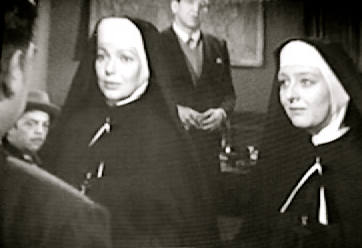 Holm is at her best when "beaming beatifically." Holm's Sister Scholastica is especially vivid -- her facing registering empathy and gravitas with undistracting warmth at precisely the right moments -- in the film's single, genuinely moving sequence in which the Sisters visit a shady underworld figure named Luigi Rossi (Thomas Gomez in a startling, emotionally textured performance).
Holm is at her best when "beaming beatifically." Holm's Sister Scholastica is especially vivid -- her facing registering empathy and gravitas with undistracting warmth at precisely the right moments -- in the film's single, genuinely moving sequence in which the Sisters visit a shady underworld figure named Luigi Rossi (Thomas Gomez in a startling, emotionally textured performance).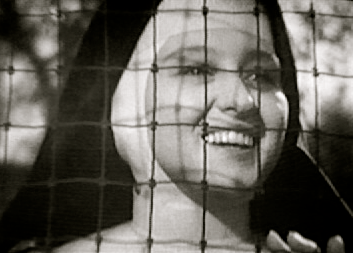 Holm is also adept at conveying genuine, infectious enthusiasm, all of which makes her Sister Scholastica pretty adorable.
Holm is also adept at conveying genuine, infectious enthusiasm, all of which makes her Sister Scholastica pretty adorable.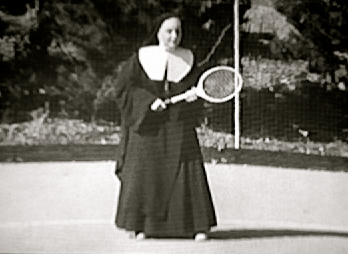 This wimpled adorableness is on full display when Holm's Sister Scholastica takes to the tennis court in a quid pro quo gesture that feels dangerously close to a wager. The scene is played for comedy -- I kept thinking that Sister Scholastica has all the makings of a 1960s Disney feature, The Nun Who Wore Tennis Shoes -- before it is revealed -- spoiler alert! like you care! -- that Sister Scholastica was a French tennis champion before she entered the religious life. (Imagine that!)
This wimpled adorableness is on full display when Holm's Sister Scholastica takes to the tennis court in a quid pro quo gesture that feels dangerously close to a wager. The scene is played for comedy -- I kept thinking that Sister Scholastica has all the makings of a 1960s Disney feature, The Nun Who Wore Tennis Shoes -- before it is revealed -- spoiler alert! like you care! -- that Sister Scholastica was a French tennis champion before she entered the religious life. (Imagine that!)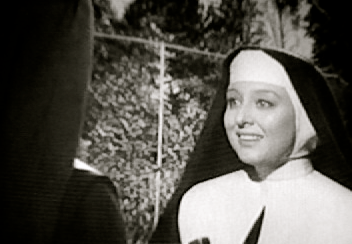 Celeste Holm is entirely adequate in the role of Sister Scholastica, surviving both her miscasting and her costar with a witty, empathetic grace.
Celeste Holm is entirely adequate in the role of Sister Scholastica, surviving both her miscasting and her costar with a witty, empathetic grace.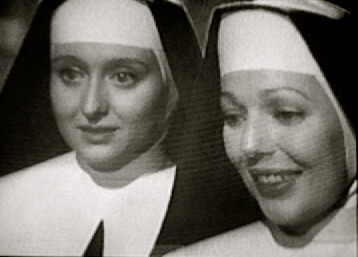 The part of Sister Scholastica -- a co-lead by most measures -- is nonetheless a supporting role that would have likely escaped Oscar's notice, were it not for the inexplicable nomination surge for this picture (7 nominations! WTF!?) and for Celeste Holm being one of Oscar's most reliable WIDOs of the period. (I tend to count the other Supporting Actress nomination from this film "a coaster" but we'll get into that in the coming weeks.)
The part of Sister Scholastica -- a co-lead by most measures -- is nonetheless a supporting role that would have likely escaped Oscar's notice, were it not for the inexplicable nomination surge for this picture (7 nominations! WTF!?) and for Celeste Holm being one of Oscar's most reliable WIDOs of the period. (I tend to count the other Supporting Actress nomination from this film "a coaster" but we'll get into that in the coming weeks.)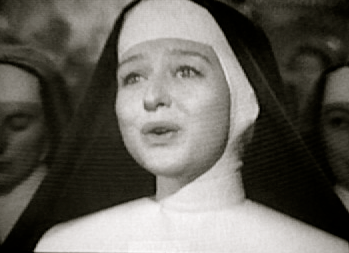 An entirely decent performance by an actress on whom Oscar was sorta stuck in the later 1940s.
An entirely decent performance by an actress on whom Oscar was sorta stuck in the later 1940s.


